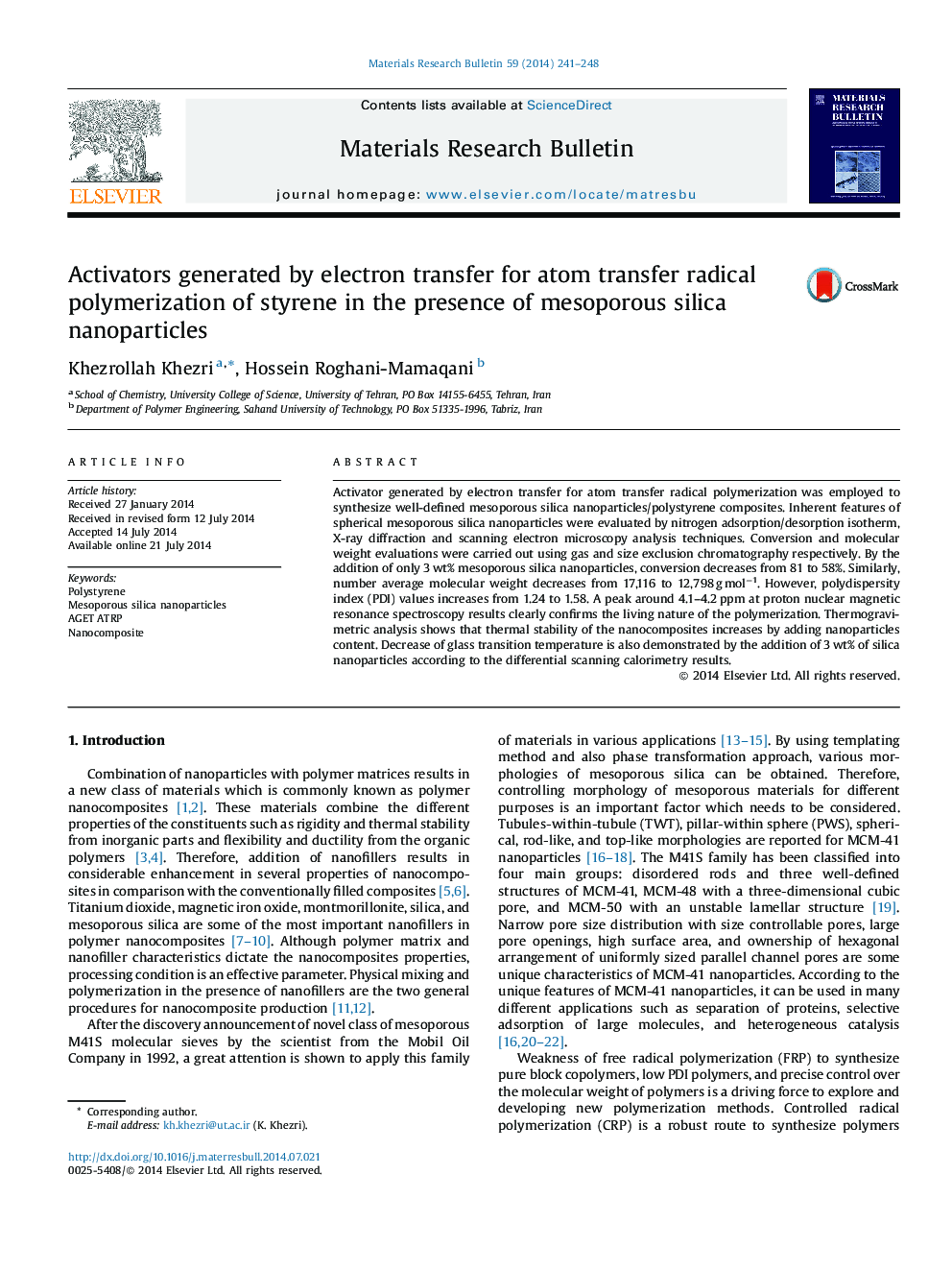| Article ID | Journal | Published Year | Pages | File Type |
|---|---|---|---|---|
| 1488027 | Materials Research Bulletin | 2014 | 8 Pages |
•Spherical morphology, hexagonal structure, and high surface area with regular pore diameters of the synthesized MCM-41 nanoparticles are examined.•AGET ATRP of styrene in the presence of MCM-41 nanoparticles is performed.•Effect of MCM-41 nanoparticles addition on the polymerization rate, conversion and molecular weights of the products are discussed.•Improvement in thermal stability of the nanocomposites and decreasing Tg values was also observed by incorporation of MCM-41 nanoparticles.
Activator generated by electron transfer for atom transfer radical polymerization was employed to synthesize well-defined mesoporous silica nanoparticles/polystyrene composites. Inherent features of spherical mesoporous silica nanoparticles were evaluated by nitrogen adsorption/desorption isotherm, X-ray diffraction and scanning electron microscopy analysis techniques. Conversion and molecular weight evaluations were carried out using gas and size exclusion chromatography respectively. By the addition of only 3 wt% mesoporous silica nanoparticles, conversion decreases from 81 to 58%. Similarly, number average molecular weight decreases from 17,116 to 12,798 g mol−1. However, polydispersity index (PDI) values increases from 1.24 to 1.58. A peak around 4.1–4.2 ppm at proton nuclear magnetic resonance spectroscopy results clearly confirms the living nature of the polymerization. Thermogravimetric analysis shows that thermal stability of the nanocomposites increases by adding nanoparticles content. Decrease of glass transition temperature is also demonstrated by the addition of 3 wt% of silica nanoparticles according to the differential scanning calorimetry results.
Graphical abstractEffect of mesoporous silica nanoparticles (MCM-41) on the activator generated by electron transfer for atom transfer radical polymerization (AGET ATRP) is investigated. Decrement of conversion and number average molecular weight and also increment of polydispersity index (PDI) values are three main results of addition of MCM-41 nanoparticles. Incorporation of MCM-41 nanoparticles in the polystyrene matrix can clearly increase thermal stability and decrease glass transition temperature of the nanocomposites.Figure optionsDownload full-size imageDownload as PowerPoint slide
